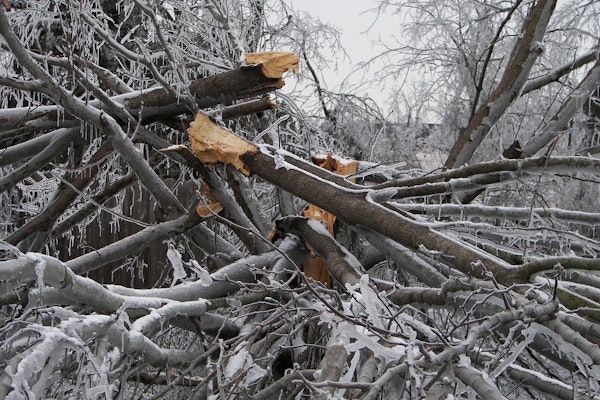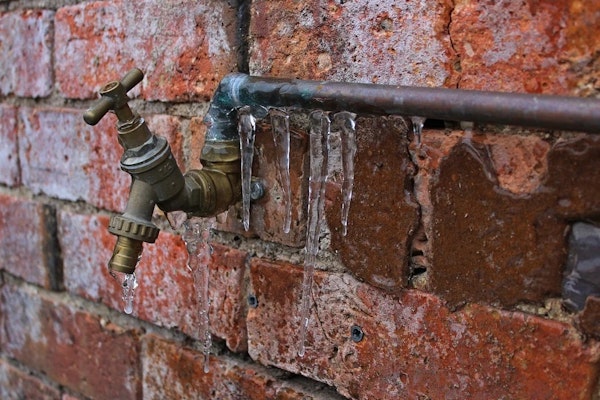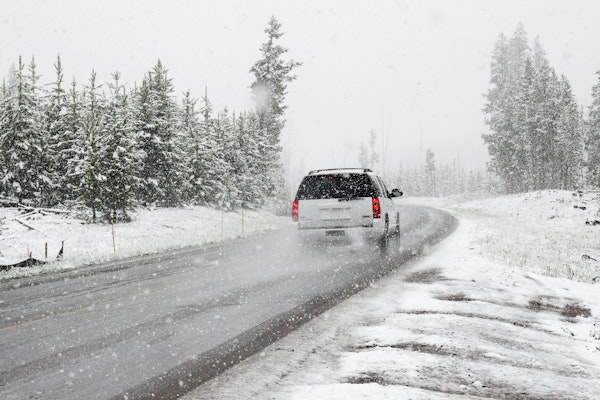
Deep Freeze Hits Southeast With Snowstorms, Widespread Claims, and Florida Crop Risk
A prolonged Arctic outbreak brings snow, crashes, power outages, and freeze losses across the Southeast, raising claim concerns from auto accidents to Florida citrus damage.
February 2
Auto
Catastrophe
Insurance Industry
Property
Risk Management
Florida
Louisiana
Mississippi
New Jersey
North Carolina

California Climate Disclosure Laws Face First Amendment Test in Federal Appeal
Business groups argue California’s climate reporting mandates compel political speech and impose nationwide compliance burdens as the Ninth Circuit weighs constitutional limits.
February 2
Catastrophe
Insurance Industry
Legislation & Regulation
Litigation
Property
California

State Farm Reports 1,200+ Claims as Winter Storm Fern Triggers Frozen Pipe and Tree Damage
Frozen pipes, downed trees, and power outages are expected to drive additional property and auto claims as extreme cold persists across the Central and Eastern US.
January 28
Auto
Catastrophe
Insurance Industry
Property
Risk Management

Winter Storm Fern Expected to Cause Over $100 Billion in Economic Losses
AccuWeather says snow, ice, extreme cold, and prolonged outages created widespread insured and uninsured losses across the U.S.
January 27
Catastrophe
Insurance Industry
Property
Risk Management
Underwriting

Frozen Pipes Drive $628 Million in State Farm Water Damage Losses
New claims data shows freeze-related water losses remain a major severity driver, with average payments exceeding $30,000 and repairs stretching for months.
January 27
Catastrophe
Insurance Industry
Property
Risk Management
Illinois
Oregon
Tennessee
Texas
Washington

Power Outages Cause Billions in Hidden Losses That Insurance Models Miss
New research shows business interruption and system-wide losses from blackouts can dwarf insured property damage, raising questions for catastrophe modeling and resilience investment.
January 27
Catastrophe
Insurance Industry
Legislation & Regulation
Property
Risk Management

Data Center Boom Is Testing Insurance Capacity and Claims Response
As data center construction surges across the U.S., insurers and adjusters confront unprecedented aggregation of values, supply chain delays, and power-related risks that complicate coverage and claims handling.
January 27
Catastrophe
Insurance Industry
Property
Risk Management
Technology

Catastrophe Losses Push Businesses Toward Captives as Coverage Gaps Widen
More frequent disasters are straining commercial insurance programs, forcing companies to retain more risk and explore captives to address losses that traditional policies no longer cover.
January 27
Catastrophe
Insurance Industry
Property
Risk Management
Underwriting

Winter Storm Fern Poised to Drive Billion-Dollar Insured Losses Across 34 States
Prolonged ice, power outages, and lingering cold raise concerns over property damage, frozen pipes, and business interruption claims across much of the US.
January 26
Catastrophe
Insurance Industry
Property
Risk Management
District Of Columbia
Louisiana
Mississippi
New York
Tennessee

Ice Storm Strains US Power Grids as Blackout Risks Rise From Texas to New England
Grid operators warn of record winter demand and prolonged outages as ice damage, extreme cold, and emergency measures collide across multiple regions.
January 26
Auto
Catastrophe
Insurance Industry
Legislation & Regulation
Property
Connecticut
District Of Columbia
Illinois
Louisiana
Maine

Americans Expect Climate Change to Harm the World More Than Themselves, Survey Finds
A new YouGov survey finds widespread concern about global climate impacts, but far fewer Americans expect serious harm to themselves or their property.
January 23
Catastrophe
Insurance Industry
Property
Risk Management

Winter Storm Threatens Power Outages, Travel Disruptions Across Large Swath of U.S.
Ice and heavy snow from Texas to the Northeast could trigger widespread outages, dangerous travel, and a surge in property and auto claims.
January 23
Auto
Catastrophe
Insurance Industry
Property
Risk Management

Cyber Remains Top Global Risk for 2026 as AI and Geopolitics Drive Loss Exposure
Allianz’s 2026 Risk Barometer shows cyber incidents, AI liability, and business interruption reshaping claims exposure across industries worldwide.
January 23
Catastrophe
Insurance Industry
Legislation & Regulation
Liability
Property

Climate Nonprofits Step In as Federal Weather and Disaster Databases Are Cut
As federal agencies scale back climate and weather programs, nonprofit groups are stepping in to preserve datasets critical to catastrophe modeling, insurance claims analysis, and risk mitigation.
January 23
Catastrophe
Insurance Industry
Legislation & Regulation
Property
Risk Management
Colorado
Florida

AI Agents, Governance Gaps, and the Future of Insurance Claims Decision-Making
As insurers rush to deploy AI agents, new governance, data controls, and decision frameworks are becoming critical to claims accuracy, compliance, and trust.
January 23
Catastrophe
Insurance Industry
Property
Risk Management
Technology





